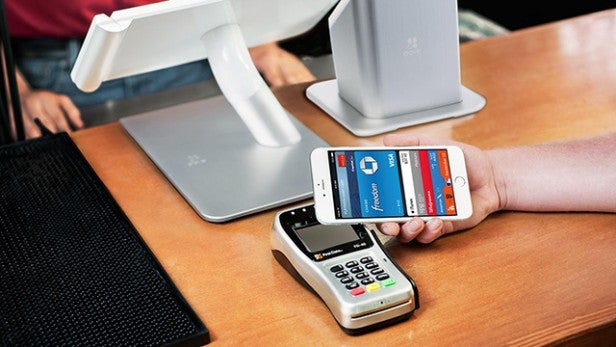Cashless payments overtake coins and notes for first time in UK

The number of cash payments in the UK has finally been trumped by cashless transactions for the first time ever.
According to figures published by the Payments Council, the volume of cash payments made by consumers, business, and financial organisations has slumped below the halfway mark.
Last year, just 48 per cent of payments were made using the ailing medium, a fall from 52 per cent in 2013.
This means that non-cash payments – be it card, contactless or transfer – now account for a total 52 per cent, signalling our en masse departure from coins and notes.
Cash is still king when you look at consumers alone however, accounting for 52 per cent of non-business transactions last year.
However, this is forecasted to slip below 50 per cent at some point next year, as alternative ways to pay become more popular.
Debit cards are currently the second most popular individual payment method after cash, accounting for 24 per cent of payments.
Once Apple Pay launches here in the UK, it’s expected that cash will continue its downward spiral as more people begin using their phones to make contactless transactions.
Related: Apple Pay vs Samsung Pay
Cash isn’t disappearing just yet, however; the report details how the number of cash machines has actually grown since last year, now totalling 69,382.
The number of free-to-use cash machines also grew by 5.2 per cent, bring the figure up to 50,506.
With the majority of machines now free-to-use, the number of individuals using cash machines is still seeing continued growth year-on-year.
Apparently 91 per cent of us withdrew cash from machines at least once a month back in 2014.
Is the demise of cash inevitable, or can it fend off its growing number of adversaries? Let us know in the comments.


